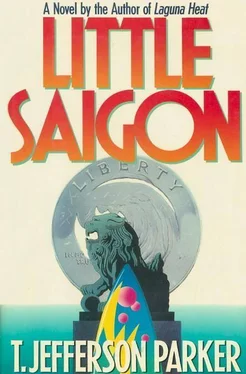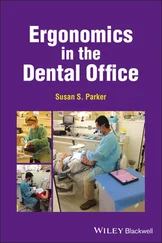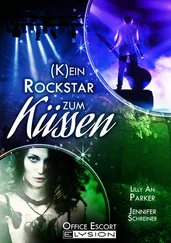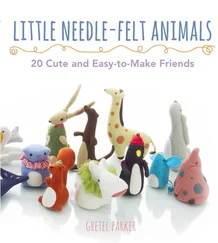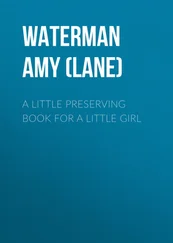He could still smell the death in his nostrils, on his skin, in the air around him, everywhere.
What am I supposed to do?
I don’t know, Benny. If I did, I’d do it for you. But it’s clear to me that you’re over your head and so am I, and that things are going to get worse before they get better.
Frye sat on the damp beach, took a handful of sand, and let it run between his fingers. He wondered if he’d simply been there more, closer to Bennett, more involved with the family, more present, somehow this all wouldn’t have happened. Ridiculous, he thought. But little things can make the difference. The road is paved by degrees, the thousand paths taken, or not. We steer by the second. Take your eyes off the road, you hit a cement mixer or cream a nun in a crosswalk. Take your pick. It’s the small stuff that adds up, or doesn’t. Something here prevents something there — a word, a gesture, an action.
And Frye knew that the last ten years of his life had been a slow retreat from his family, his wife, his own future. When you ignore enough problems, he thought, they become one problem. And the more you ignore it the faster it grows until you end up sitting on a cold beach, wondering if the one thing in your life you do well is going to kill you. More than anything, you hate yourself for being afraid.
I want back in. I can try.
He paddled out. Past the shorebreak, he looked south to Cristobel’s faded blue apartments, which from this angle seemed to be spilling into the water. Brooks Street will be pumping, he thought, so will Salt Creek and Trestles. You have to admit it: Rockpile on a hurricane swell is one ugly break. A surfer waved; Frye waved back.
Sitting outside on his board now, he blew into his hands, tried to get the blood going. All he could feel was the damp chill of the tunnel, and the putrid cavern where Loc’s brother lay. He shivered. The morning sky was gray and so was the water, and somewhere far to the west they met without a seam. The next set lined up against it. He lowered himself to the board and paddled hard, rising with the first wave. He was surprised how big it was. The next wave came close behind, bigger still. He scrambled up its face and pitched over on the far side, ready for another. Third time’s charm, he thought, sliding for the sweet spot on the incoming mountain, finding it, pivoting his board and with three hard strokes of his arms, felt the wave’s mass catch hold of him, take him up, then hesitate and offer him that one last opportunity to get out.
Frye looked down, felt the panic clustering at the base of his spine. He looked down at the miniaturized shore, the tiny hotel and blue apartments, the toy cars inching along Coast Highway a thousand feet below him. He looked down at the water sucking out, the beach receding. He felt the wave rising, rising, rising with him into the gray sky, gathering its aqueous tonnage for final release.
He made one last terrified assessment, then bailed.
Grabbing his board with both hands, he yanked it back toward the ocean as hard as he could. He plopped down to safety as the wave rose, hovered for a moment, then boomed ashore behind him. Somehow he made over the next wave of the set. He sat up on his board, heart thumping, arms weak and cold. The board dipped and bobbed. He could see his feet below, pale smudges in the dark water.
Frye could never remember feeling so isolated out here, so separate and temporary. It is not good to feel part of nothing.
He just sat there and watched the next wave coming in, his face flushed, feeling some part of himself — a portion of what he’d always been, a sense of substance and character, a feeling of singularity, at very least a passion that defined him if only to himself — passing him up with every untaken wave.
The clean-up wave formed ahead of him, the last and largest by far.
What he did next was partly out of spite, partly out of desperation, partly out of shame. It was the one thing he could think to do that was positive. He did it for Li and he did it for Cristobel and he did it for Bennett and he did it for himself. He did it as a funeral for the way he had been.
He pivoted, stroked twice, and dropped in.
The downward rush was exceptionally steep and fast, his board trying to jet ahead without him. He eased a rail into the flank of water and shot laterally, the wave lip smacking his head. Then he was in front of it, banking back down, body bent and arms out for balance, centered for speed. At the bottom he snapped his heels out and leaned in, shooting up again as the board rose instantly and he loosened his knees for the shock, climbing up the vertiginous wall, looking back to the big cylinder that gained quickly on him. Near the top he crouched and leveled off and let the heaving barrel come over him, then stood and slowed just a fraction to get far back into it, where the sand and the foam swirl furiously and the world condenses to a roar that you can feel all the way to your bones. Frye gently traced his hand along the wall of water that enclosed him, fingers thrumming liquid ribs, feet vibrating with his board, looking ahead as through a fluid telescope to where the wave was forming — this momentary heart of things — fresh and big and new out of the sea. In a moment of purest velocity, knees bent slightly and his fingertips brushing the cylinder, he stood there: reduced, washed, opinionless.
As usual at this point, Frye never knew what hit him.
All he did know was that he felt suddenly dark and pressurized, strangely removed now, with only a dull thundering somewhere overhead. No light. A rotating kind of motion, but not self-governed, as if he were a gear driven by other gears in some great liquid machine.
He tried to let himself float to the top but the grinding of the huge wave held him down. A few kicks toward bottom — just where is it now? Eyes open: a gritty swirl of shadow and half-light, shapes moving within shapes. Blow out some air and follow the bubbles up. But he was tumbling still, and the bubbles simply joined the turbulence and disappeared.
Then this wonderment of the senses: a feeling of falling but not necessarily down, maybe up or sideways or all directions at once; followed by a realization that something is missing here, some fundamental faculty linking the organism to gravity. He pushed off the bottom with a fear-driven heave, but there was no bottom. Lights arced through his head. He thought of saving the last of his breath to simply float upward, but the last of his breath was gone.
He thrashed against the darkness, a burst of energy as he strained for the surface and finally gulped a mouthful of sandy water. He could feel the scream from his system: what is this, Chuck? God, please no. Then the weakness coming, and a warmth with it, and the uneasy hypothesis that he was really just dreaming and about to waken and everything would be okay and Hyla would be there with hot chocolate and let him watch TV awhile. Another breath of water. He could sense his arms out ahead of him in the murk, paddling, turtlelike, trying to lead his head to air.
Then Hyla had hold of him. She was dragging him. She was barking like a dog.
Her face finally congealed before him, at odds with memory. Blond hair and long, nothing like mom. Why is she barking? Hands under my arms now, some dragging motion on sand. Faces. Legs. Puke, then breathe, in that order. Then a hot rush of sea water up from the lungs, burning nose, mouth, ears, eyes, pores. A wolfish creature bearing down, speaking in tongues. Someone up there slaps it away. More shapes, all in black. I am in alien hands. I am on my back. Chest goes up and down. Air is good. Life is good.
Of course. Cristobel. Surfers. Dunce.
He worked himself to hands and knees, chest heaving, vomiting between breaths. Dunce barked and shot in and out of his vision with each wretched outpouring. He could sense someone beside him; bare feet, jeans, a spill of light hair as a hand tried to steady his back. In the mid-distance he saw more legs, heard mumbled concern. “Whoa, he’s like throbbin’ lucky he’s not totaled right now. Rad wipeout. Is that that Frye guy, or some tourist?”
Читать дальше
